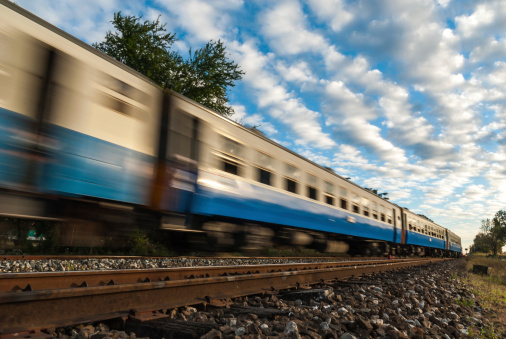I boarded the 8:30 Metro-North Railroad train home from Manhattan recently after leaving a medical meeting. It had been a long and productive day, but now I was searching for a mint in my pocketbook because I had a weird taste in my mouth. All I found was a lollipop.
Just before the train left Grand Central, a family of three hurried on and sat near me. The father said, “My son wants to know if you got a shot today.” Across the aisle, I saw an adorable little boy sitting on a seat opposite his father, smiling at me. The father added, “My son got six shots today.”
“Really?” I asked. “That’s a lot of shots. Maybe he wants my lollipop.”
I told him I was a physician and noted that generally children do not get six shots in one day. His mother then proceeded to give him a lollipop from her pocketbook and also pulled out her son’s clinic record. As we talked, the family revealed they had moved to New York from Bangladesh nine months ago. The boy had gotten shots there, but they had no records and needed proof of immunization for school.
 A Trek for Immunizations
A Trek for Immunizations
This turned out to be no simple task. The family had travelled two hours from the Westchester County suburbs to a Manhattan clinic because they did not have insurance. They spent more than $100 in travel costs to get to the clinic and waited more than eight hours to be seen. Also, they were not sure how much they would be billed for the visit and the immunizations.
There had to be an easier way for them to get help. I pulled out my phone and looked up some information that could help them get the medical care they needed, directing them to pediatric physicians and clinics closer to their new home.
A Travelling Challenge
A while later, the conductor came by to collect tickets. The family faced a new hurdle. The conductor told them they were on the wrong train. They were exasperated.
Back to the phone. I went onto the Metro-North app to help this family figure out the best route and the timing of the trains so they could get home. They got off at the next stop. I could tell they were very tired, but grateful. I sank back in my seat and started to relax, relieved to know all of us would be getting home soon.
At the next stop, a man who had been sitting close enough to hear my conversation with the family approached and startled me. He said, “YOU did a good deed today!”
Reflecting on that ride and his comment, I realized that almost every medical school applicant says he or she wants to go into medicine to help people. But you don’t need to have a medical degree to help others. Sometimes, kindness, concern and the right tools (such as a smartphone and internet access) can be really useful.
As physicians we sometimes find ourselves helping patients who are not our own. They’re lost in the medical system and struggling to get to the care they need. Our unique training means we know where to look and how to guide them to the right destination. That’s why it’s important to cherish the times when we are appreciated.
There are still many patients who do not have insurance or knowledge about the system and need our help finding their way. This is something we must never underestimate. Sometimes being a doctor extends far beyond our own patients.

